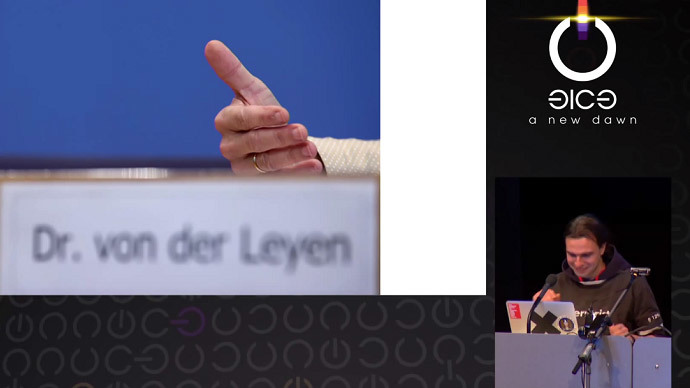Hacker steals fingerprint from photo, suggests politicians wear gloves in public

A German computer hacker has demonstrated how easy it is to foil biometric fingerprint security by using nothing but commercial software and a couple of high resolution photos of one’s hand. To prove it, he recreated the German defense minister’s print.
German hacker Jan Krissler, aka 'Starbug,' claimed that by using a high resolution photograph and freely available commercial software, he could replicate the German defense minister’s fingerprint, implying that it would be enough to hack her biometric security.
"After this talk, politicians will presumably wear gloves when talking in public," Starbug told the Chaos Computer Club (CCC) conference.
Krissler took a photo of Defense Minister Ursula von der Leyen’s thumb from a distance of three meters, plus several other pictures of her thumb taken at different times, and used a program called Verifinger to recreate the print.

Starbug is known for circumventing Apple’s Touch ID, or fingerprint reader, just 48 hours after its release. Reproducing a fingerprint using photos further exposes the vulnerability of biometrics security measures.
As the CCC convention organizers said on their website, "in the past years, it was successfully demonstrated a number of times how easily fingerprints can be stolen from [their] owner if a person touched any object with a polished surface...With this knowledge there will be no need to steal objects carrying the fingerprints anymore."
READ MORE: Voiceprint harvesting – the next frontier in data privacy war
Experts agree that while mainstream biometrics security measures that rely on static information – such as face recognition or fingerprints – may not seem easy to forge, they can certainly still be faked.
German based #Chaos-Computer-Club reveals new way to hack #biometric#security systems at #Chaos-Communication-Congr…https://t.co/Ayw69B1gWr
— Thorsten Körner (@ThorstenKoerner) December 29, 2014












